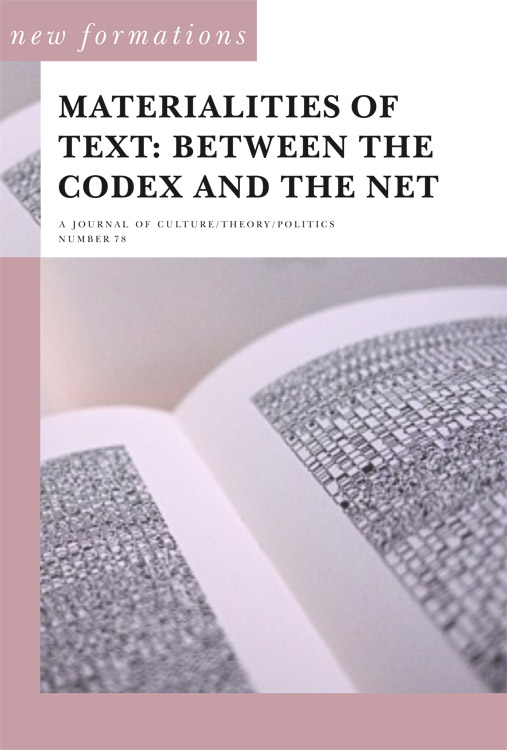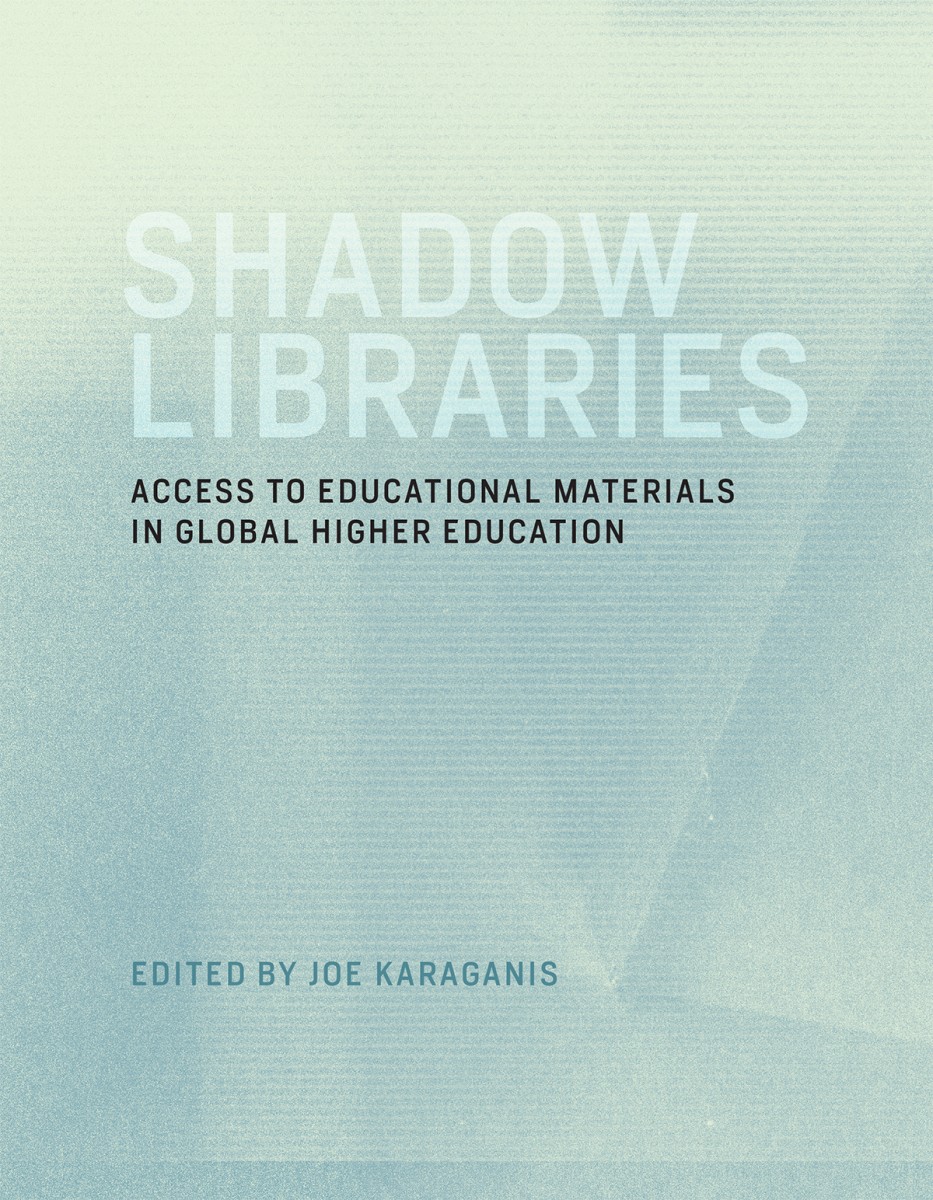New Formations, 78: Materialities of Text: Between the Codex and the Net (2013)
Filed under journal | Tags: · archive, artists book, book, digital humanities, digital library, library, materiality, publishing, reading, shadow library, text

“The cultural authority of the codex form of the book appears to be in a process of displacement ensuing from the rise of on-line digital media. The traditional material structures of the book – its physical forms and its institutional forms of production, circulation, and preservation – are often seen as being subject to dematerialisation; evaporating in the transitory appearances of the digital screen and in the proliferation of new systems of production. However, this issue of New Formations makes the case that the present historical juncture should be understood as a mixed media milieu, in which traditional and digital forms of writing and publishing coalesce and conflict in a complex array of textual materialities.
Such materialities of text are at once sites of political and aesthetic experimentation, and of intense capitalization, intersecting features which are approached in the articles collected here through a broad range of theoretical and empirical themes: diagrammatic writing; the material reading formations of a best-seller novel; grey literature in the institutions of cultural studies; Black Twitter; the politics of Open Access and the artists’ book; digital humanities and its political problematics; the bibliopolitics of the passport; and the political and aesthetic forms of independent publishing.”
Contributions by Richard Burt, Sanjay Sharma, Hanna Kuusela, Johanna Drucker, Ted Striphas and Mark Hayward, Sas Mays, Janneke Adema and Gary Hall, Jodi Dean, Sean Dockray, Alessandro Ludovico, Pauline van Mourik, Broekman, Nicholas Thoburn and Dmitry Vilensky.
Edited and with an Introduction by Sas Mays and Nicholas Thoburn
Publisher Lawrence & Wishart, Summer 2013
ISSN 0950-2378
207 pages
Review: Janneke Adema (2013).
Comment (0)Joe Karaganis (ed.): Shadow Libraries: Access to Knowledge in Global Higher Education (2018)
Filed under book | Tags: · copyright, digital library, knowledge, library, open access, piracy, publishing, shadow library

“Examining the new ecosystems of access that are emerging in middle- and low-income countries as opportunities for higher education expand but funding for materials shrinks.
Even as middle- and low-income countries expand their higher education systems, their governments are retreating from responsibility for funding and managing this expansion. The public provision of educational materials in these contexts is rare; instead, libraries, faculty, and students are on their own to get what they need. Shadow Libraries explores the new ecosystem of access, charting the flow of educational and research materials from authors to publishers to libraries to students, and from comparatively rich universities to poorer ones. In countries from Russia to Brazil, the weakness of formal models of access was countered by the growth of informal ones. By the early 2000s, the principal form of access to materials was informal copying and sharing. Since then, such unauthorized archives as Libgen, Gigapedia, and Sci-Hub have become global “shadow libraries,” with massive aggregations of downloadable scholarly materials.
The chapters consider experiments with access in a range of middle- and low-income countries, describing, among other things, the Russian samizdat tradition and the connection of illicit copying to resistance to oppression; BiblioFyL, an online archive built by students at the University of Buenos Aires; education policy and the daily practices of students in post-Apartheid South Africa; the politics of access in India; and copy culture in Brazil.”
Contributors: Balázs Bodó, Laura Czerniewicz, Miroslaw Filiciak, Mariana Fossatti, Jorge Gemetto, Eve Gray, Evelin Heidel, Joe Karaganis, Lawrence Liang, Pedro Mizukami, Jhessica Reia, Alek Tarkowski
Publisher MIT Press, Cambridge/MA; International Development Research Centre, Ottawa; and The American Assembly at Columbia University, New York, 2018
Creative Commons Attribution-NonCommercial 4.0 International License
ISBN 9780262535014, 0262535017
313 pages
PDF, PDF (8 MB)
EPUB (added on 2018-5-31)
HTML (added on 2018-9-23)
See also Media Piracy in Emerging Economies, 2011.
Comment (0)
